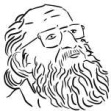Relação opressor-oprimido na contemporaneidade
DOI:
https://doi.org/10.35699/2237-5864.2021.35433Palavras-chave:
Paulo Freire, Práxis, Educação problematizadoraResumo
A pandemia e o fortalecimento da relação opressor-oprimido vêm caracterizando tempos difíceis no Brasil, marcados por momentos de avanço do conservadorismo e do questionamento de valores sociais e educacionais. Neste ensaio, revisitamos as obras freirianas para dialogar sobre o oprimido da contemporaneidade e como a práxis libertadora na docência pode superar a opressão, de forma a restaurar a humanidade. A pesquisa privilegia a abordagem de natureza qualitativa e elege, como procedimento investigativo, o estudo bibliográfico. Na análise, a educação problematizadora pode ser o caminho para a promoção de debates sobre problemas sociais, econômicos, políticos e culturais, levando à verdadeira participação e formação transformadora do educando. A perspectiva teórico-metodológica freiriana torna-se de extrema relevância no atual contexto político, por possibilitar ao oprimido condições de identificar a alienação das massas populares pelas narrativas, pelos meios de comunicação e pela sua relação com o mundo.
Downloads
Referências
ALESSI, Gil. Indígenas isolados no Brasil entram em risco de extinção com avanço de projeto na Câmara. São Paulo: El País, 02 jul. 2021. Disponível em: https://brasil.elpais.com/brasil/2021-07-02/indigenas-isolados-no-brasil-entram-em-risco-de-extincao-com-avanco-de-projeto-na-camara.html. Acesso em: 15 jul. 2021.
AMARAL, Nelson Cardoso. As Universidades Federais brasileiras sob ataque do Governo Bolsonaro. Propuesta Educativa, Buenos Aires, vol. 2, n. 52, p. 127-138, 2019.
BOLSONARO, Jair. O Caminho da Prosperidade. Proposta de Plano de Governo. DF: Presidência da República, 2018. Disponível em: https://divulgacandcontas.tse.jus.br/candidaturas/oficial/2018/BR/BR/2022802018/280000614517/proposta_1534284632231.pdf. Acesso em: 17 jul. 2021.
BRASIL. Lei nº 12.612, de 13 de abril de 2012. Declara o educador Paulo Freire Patrono da Educação Brasileira. Brasília, DF: Presidência da República, 2012. Disponível em: http://www.planalto.gov.br/ccivil_03/_ato2011-2014/2012/lei/l12612.htm. Acesso em: 21 jul. 2021.
BRASIL. Projeto de Lei nº 490 de 2017. Altera a Lei nº 9.394, de 20 de dezembro de 1996, que estabelece as diretrizes e bases da educação nacional, e a Lei nº 8.069, de 13 de julho de 1990, que dispõe sobre o Estatuto da Criança e do Adolescente, para prever a modalidade da educação domiciliar no âmbito da educação básica. Brasília, DF: Senado, 2017. Disponível em: https://www25.senado.leg.br/web/atividade/materias/-/materia/131857. Acesso em: 21 jul. 2021.
COSTA, Ana Maria Morais; SANTOS, Simone Cabral Marinho dos; VALE, Elizabete Carlos do. 50 anos da Pedagogia do Oprimido: quem são os oprimidos hoje? Olhar de Professor, Ponta Grossa, v. 23, p. 1-15, 8 dez. 2020. DOI: https://doi.org/10.5212/OlharProfr.v.23.2020.16699.209209229146.0820.
DAVIES, Nicholas. A política educacional nos governos do PT: continuidades ou descontinuidades em relação aos do PSDB? Revista HISTEDBR On line, Campinas, n. 67, p. 39-52, 2016. DOI: https://doi.org/10.20396/rho.v16i67.8646087.
EXPURGAR. In: AULETE, Caldas. Dicionário contemporâneo da Língua Portuguesa. 3. ed. Rio de Janeiro: Delta, v. 5, 1980.
FREIRE, Paulo. Extensão ou comunicação? 5. ed. Rio de Janeiro: Paz e Terra, 1980.
FREIRE, Paulo. Educação como prática da liberdade. 14. ed. Rio de Janeiro: Paz e Terra, 1983.
FREIRE, Paulo. A importância do ato de ler: em três artigos que se completam. São Paulo: Autores Associados: Cortez, 1987, p. 49.
FREIRE, Paulo. Pedagogia do Oprimido. 41. ed. Rio de Janeiro: Paz e Terra, 2011.
FREIRE, Paulo; SHOR, Ira. Medo e ousadia: o cotidiano do professor. 7. ed. Rio de Janeiro: Paz e Terra, 1986.
GUERRERO, Miguel Escobar. Sonhos e utopias: Ler Freire a partir da prática. São Paulo: Liber Livro, 2010.
INSTITUTO BRASILEIRO DE GEOGRAFIA E ESTATÍSTICA – IBGE. Desigualdades sociais por cor ou raça no Brasil, n.41, 2019.
KOHAN, Walter Omar. Paulo Freire mais do que nunca: uma biografia filosófica. Belo Horizonte: Vestígio, 2019.
LEITE, Vanessa Carneiro. Educação problematizadora de Paulo Freire na perspectiva de licenciandos em Química. Orientador: Márlon Herbert Flora Barbosa Soares. 2015. 256 f. Tese (Doutorado em Química) – Universidade Federal de Goiás, Goiás, 2015.
SANCHES, Júlio César; MOISÉS, Raika Julie; SOUZA, Rhayller Peixoto da Costa. O Brasil não pode parar: racismo e desigualdade social na campanha publicitária do governo Bolsonaro. Revista Brasileira de História da Mídia, São Paulo, v. 9, n. 2, p. 96-113, 2020. DOI: https://doi.org/10.26664/issn.2238-5126.92202011605.
STRECK, Danilo Romeu; REDIN, Euclides; ZITKOSKI, Jaime José (org.). Dicionário Paulo Freire. 2. ed. Belo Horizonte: Autêntica, 2010.
ZITKOSKI, Jaime José. Paulo Freire e educação. 2. ed. Belo Horizonte: Autêntica, 2010.

Downloads
Publicado
Edição
Seção
Licença
Copyright (c) 2021 Vanessa Carneiro Leite

Este trabalho está licenciado sob uma licença Creative Commons Attribution 4.0 International License.
Autores que publicam nesta revista mantêm os direitos autorais e concedem à revista o direito de primeira publicação, com o trabalho simultaneamente licenciado sob a Licença Creative Commons Attribution que permite o compartilhamento do trabalho com reconhecimento da autoria e publicação inicial nesta revista.
Autores têm autorização para assumir contratos adicionais separadamente, para distribuição não-exclusiva da versão do trabalho publicada nesta revista (ex.: publicar em repositório institucional ou como capítulo de livro), com reconhecimento de autoria e publicação inicial nesta revista.
Política de acesso aberto:
A Revista Docência do Ensino Superior é um periódico de Acesso Aberto, o que significa que todo o conteúdo está disponível gratuitamente, sem custo para o usuário ou sua instituição. Os usuários podem ler, baixar, copiar, distribuir, imprimir, pesquisar ou vincular os textos completos dos artigos, ou usá-los para qualquer outra finalidade legal, sem solicitar permissão prévia do editor ou do autor, desde que respeitem a licença de uso do Creative Commons utilizada pelo periódico. Esta definição de acesso aberto está de acordo com a Iniciativa de Acesso Aberto de Budapeste (BOAI).


























